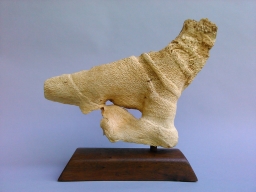Introduction
A call for Humility in Science and Religion
Opening Note from the Author:
I'm releasing the first three chapters for the eyes of only a few.
There is much work to be done on the site and the book editing.
I've had problems with partial page loading, formatting on different screen sizes and broken links.
Comments are welcome.
There are no links to social media as there are far too many copyright trolls and unseemly commentators in the wild.

Humility plays a large part in the philosophical underpinnings of this book. Science is wonderful in that it is self-correcting, no scientist wants waste time doing research based on a faulty foundation.But science is based on the faith that the rules of reality can be fully discovered and understood, allowing us to predict how everything works. Quantum Mechanics has thrown a wrench into that faithful assumption. Religion on the other hand is a belief system, and to be humble, we can and do believe pretty much anything, real or not.
The science guys declare "God is Dead" without defining what they mean by God. The priests say "don't try to understand, just believe". So the dispute rages on without resolution. Each philosophy is so content in their beliefs that neither side can recognize the value, shortcomings and similarities between the two. The hubris that comes from our egos is an understandable human response, the gnashing of teeth however is not productive.
It cannot be denied that both science and religion has contributed to the advancement of human culture; they both have helped us thrive on this planet.

Many times over the years atheists have pronounced that God is dead without providing a definition of what they mean by the word God.

For those of us fortunate enough to have the curiosity and the leisure time to ask the big questions it is difficult to synthesize answers when even the base definitions are not clear.
Theologians will readily supply characteristics that their particular church dogma supports, without asking the question “what made God”. Causality is a component of reality that is rarely discussed outside of scientific circles but it is essential to understand the importance of the concept when talking about philosophical issues (there is much more on this to follow).
We live in a cause and effect reality, on the smallest and on the largest scales, one thing leads to another. Press on the brake pedal and you will slow down the car, mix soda with acid and a chemical reaction will happen, strike an atom with a photon and potential energy of the atom will be incremented.
The answer to the question “what made God” becomes an infinite progression of, God made man, Y made God, Z made Y and so on to infinity. We humans are not comfortable with infinities.

The following is not a criticism, but the above conundrum is resolved to an extent by simplifying the argument to be one of “faith”, by both theologians and by scientists. Theologians insist that we must have faith in their particular definition of God. Scientists insist we have faith that reality always makes sense even if we do not now know everything about how it works. Both are correct if we think of God as a System rather than projecting human characteristics into the definition of God. This leads us to the boundary between science and the metaphysical. We are finite beings and as such cannot rationally comprehend infinity, but we can have faith that it exists. If then we have the humility to accept that God has always existed, that there is no beginning and no end, then our definition of God must change. God is reality, as it is and has always been, more easily described as a system that has always existed.
So what then of the concept of an interventionist God who answers the prayers of the virtuous, protects the innocent and punishes the evil among us? As individuals it is comforting to feel that a heavenly father is looking out for us, but every day we witness, what appears to be bad things happening to good people. Similarly we witness what appears to be good things imparted to lairs and deceivers. The loss of faith in God, hopelessness and nihilism is often the result this incongruity. The schism here is in the scope of God’s intervention. Perhaps God works in broad strokes and this is how it must be (much more on this later).

Once again, with humility, we must admit that humanity is fowling God’s creation and that none of us are innocents. Does this not imply that an appropriate punishment should be rendered upon all of us? Is this not the way it is? All of us suffer when we wage war, even the “innocent”. All of us suffer when, for self-serving reasons, we pollute our waters. All of us are limited in our wisdom and as such impart discord upon others.
If we accept that the God System grants us free will then we have clues as to our path as individuals (much more on this in future chapters). If we continue, as a species, with the hubris that we possess godlike features then the path becomes more blurred. We must, as individuals strive to be better, less sinful creatures every day. We must endeavor to make the time to contemplate our weaknesses and take steps to ameliorate them.
This book will attempt to describe a definition of God that is functional and indicative of a Magnificent Perfection. The book will attempt, with humility, how we can conceptualize God in such a way as to be compatible with both science and theological demands.
Addendum
This book was started in 2004 with the title "The Perfect Father - The Underlying Reality of Science and Religion". It is a long tome exploring several traditional religions and many scientific disciplines. I'm proud of it but..... Times have changed and attention spans are short. This website is a truncated version of that book. I have endeavored to preserve the concepts, but in more of a blog format than a book. I hope that you like it.
